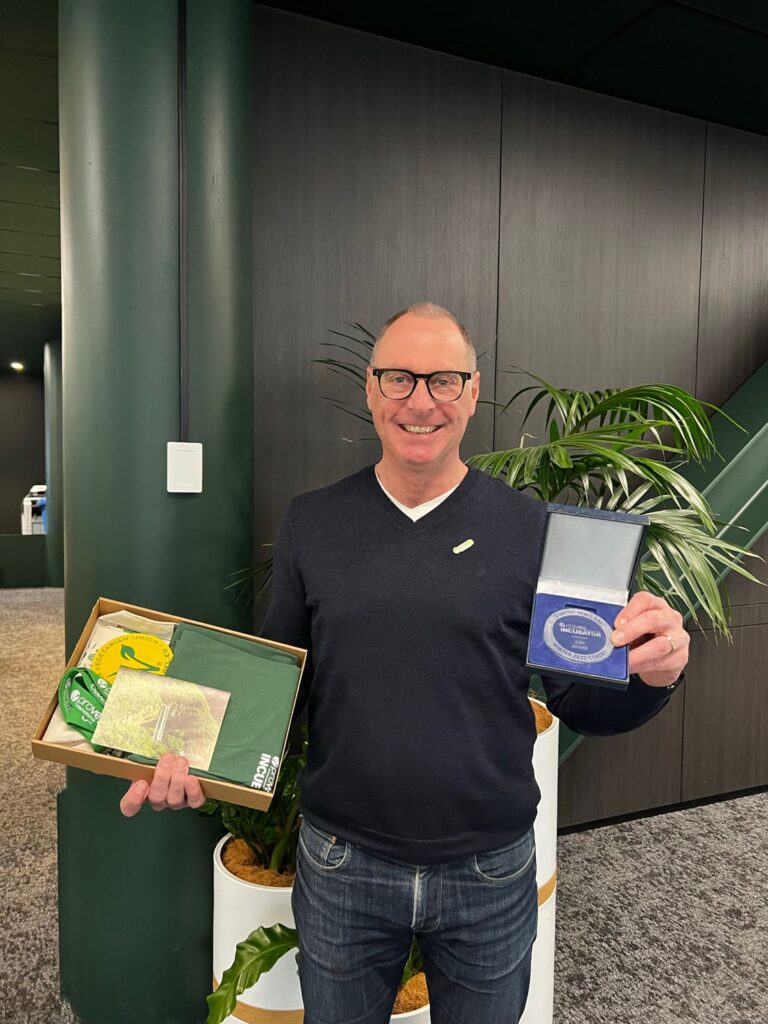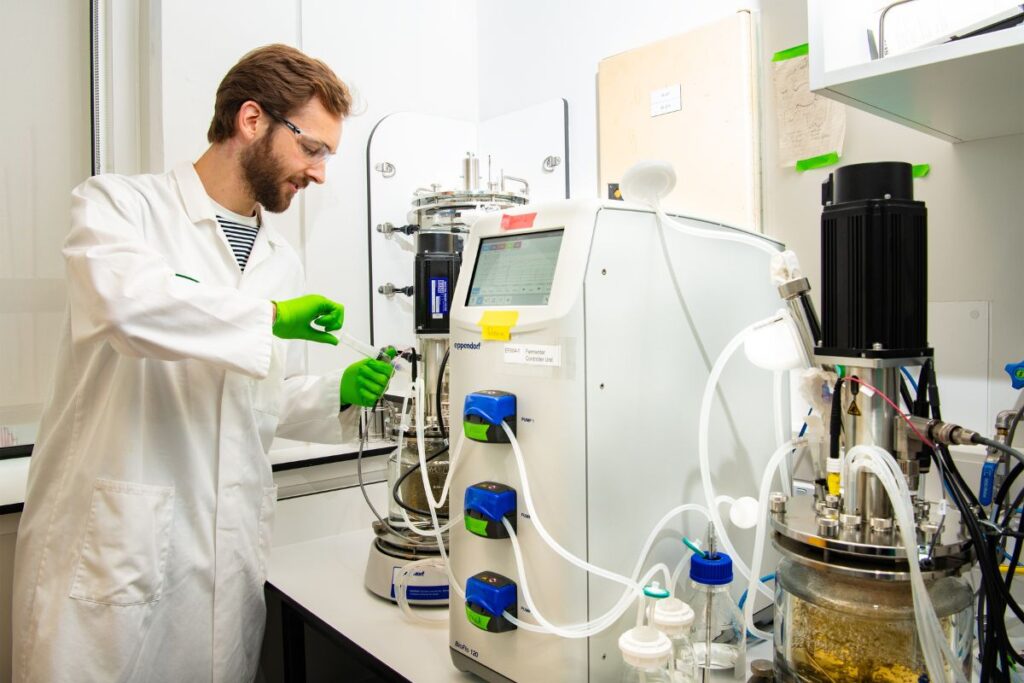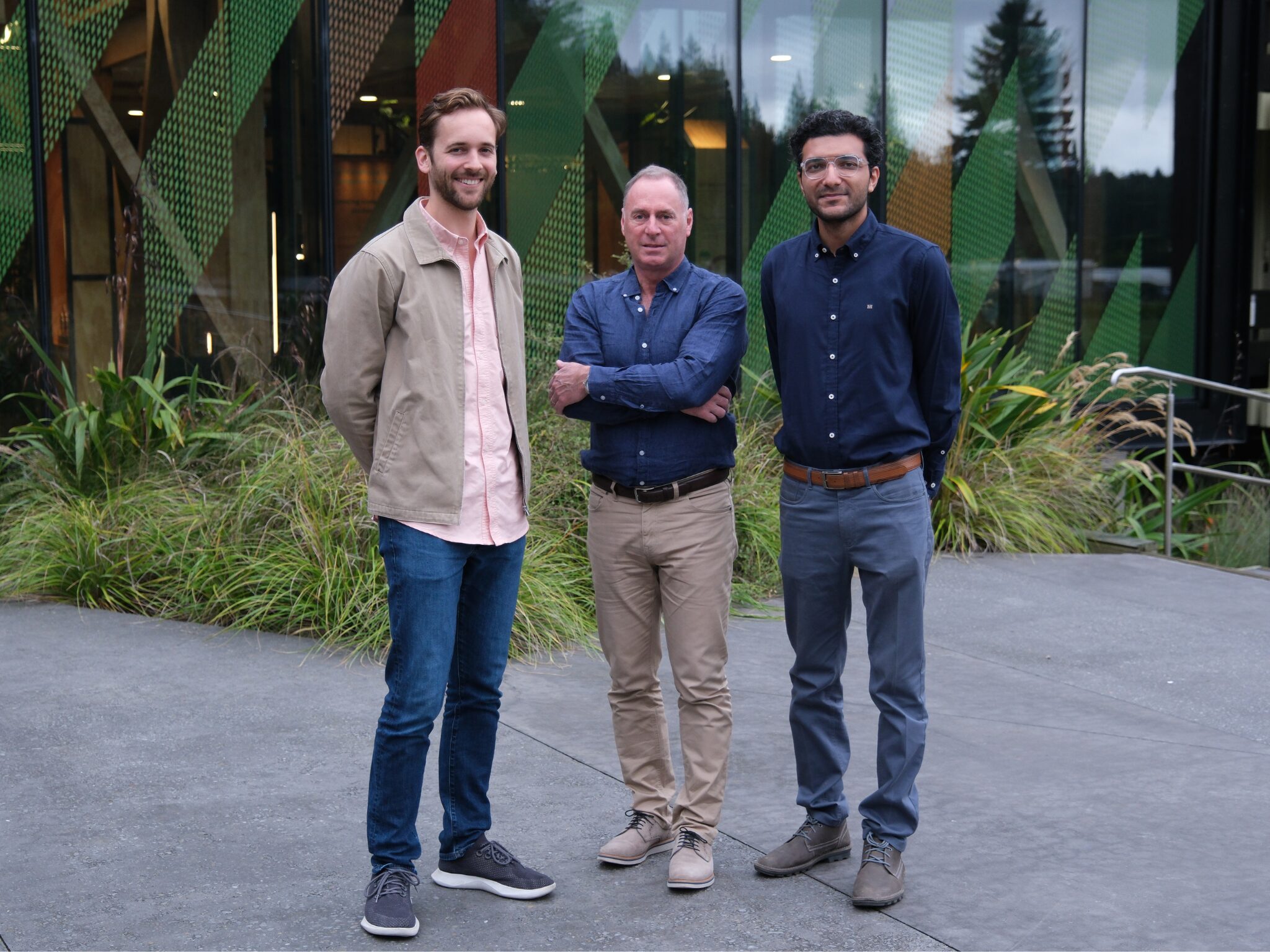4 Mins Read
New Zealand startup Jooules has raised NZ$1M (about $600,000) in funding to advance its gaseous fermentation technology, which converts carbon emissions streams into protein for food ingredients.
Wellington-based Jooules secured the capital from Sprout Agritech LP, which will enable it to power up its gaseous fermentation tech to produce carbon-based proteins through microbial fermentation.
Working with the Crown research entity to fast-track product development via specialist equipment, the startup says it will use the funding round to expand its technical team.
“Our ingredients-based protein will be nutritionally dense and resilient with major ethical benefits when you consider that we will be able to carbon capture emissions streams from other industries,” said Jouules founder David McLellan.
How Jooules turns carbon into protein

Jooules employs resource-efficient production techniques in a process where CO2 is an input – not an output. This means its protein consumes 600 times less water and requires 99% less land than conventional protein sources.
It is also the only New Zealand startup leveraging microbes to produce protein ingredients from carbon. “In laboratory settings, we have proved the ability to harness the power of ancient microbes through gaseous fermentation to produce functional food-grade protein from carbon dioxide,” said McLellan, and the company says it could potentially produce these on a large scale, which is paramount for novel proteins like these.
“Fermentation processes commonly require large quantities of sugars to be fed to the microbes to allow them to grow. This of course means reliance on a crop of some description to produce those sugars,” he explained to NZ Entrepreneur in November.
“Our bioprocess is quite different. Our microbial strains don’t consume sugars for their source of energy and carbon to grow as is common with most fermentation processes. Instead, they actually consume CO2 gas for their carbon source and get their energy from hydrogen – the most abundant element in the universe. And from those two primary sources, they create proteins and other nutritionally valuable molecules.”
The company won the Judges Panel Award on the demo day of the International ProVeg Accelerator Programme in Germany in 2022, which McLellan took as validation for his startup’s mission. Jooules is a B2B business, aiming to provide protein ingredients to large manufacturers to help feed a global population that will reach 10 billion in 2050.
“Our protein is designed specifically for food manufacturers around the world seeking a more sustainable protein source and will be ideal for both human and high-value companion animal diets,” he said.
Regulatory and launch plans

What Jooules is producing are proteins that contain all nine essential amino acids. Early testing has shown that gaseous-fermentation-derived proteins meet the UN FAO’s standards for the nutritional density of complete proteins.
“Through the recent advancements in fermentation technology, we are able to produce a new source of nutritionally complete foods. Change isn’t necessarily about disrupting what we currently have, but being able to produce significant new export revenues from brand new technology,” McLellan explained.
“Producing a product we can sell business to business empowers the world’s food manufacturers to address the source of the problem – scope 3 emissions associated with their supply chain – at scale,” he added. “We’re excited to be powering the future of food from New Zealand to the world.”
“They’ve invented a way to address a global challenge that uses the problem – carbon dioxide – as a pathway to food,” added Warren Bebb, investment manager at Sprout Agritech LP, which has invested NZ$1 in six other early-stage deep tech startups. “The team’s approach leapfrogs other solutions in both innovation and ambition and we’re hugely excited to see what the team is able to achieve as it accelerates its investment into product development and testing.”
Given its status as a novel protein, Jooules would first need to get the all-clear from food safety authorities in the countries it wants to go to market. While it has earmarked Asia-Pacific as its initial target over the next financial year, it aims to quickly expand to “closely aligned markets” soon.
He indicated to NZ Entrepreneur that one of its pathways could be to tackle aquaculture and overfishing, replacing the “millions of tonnes of krill and anchovies” scooped up from the oceans annually, only to be fed to salmon that humans end up eating.
The gas protein space is nascent, but budding. Finland’s Solar Foods is one of the leaders in this space, which opened its first commercial-scale facility last month. This was followed by an $8.5M top-up to its Series B funding, which now totals $17M. Some other innovators in this space include Kiverdi’s Air Protein, NovoNutrients, Calysta (all US), Arkeon Biotechnologies (Austria), Farmless (Netherlands) and Deep Branch Biotech (UK).




